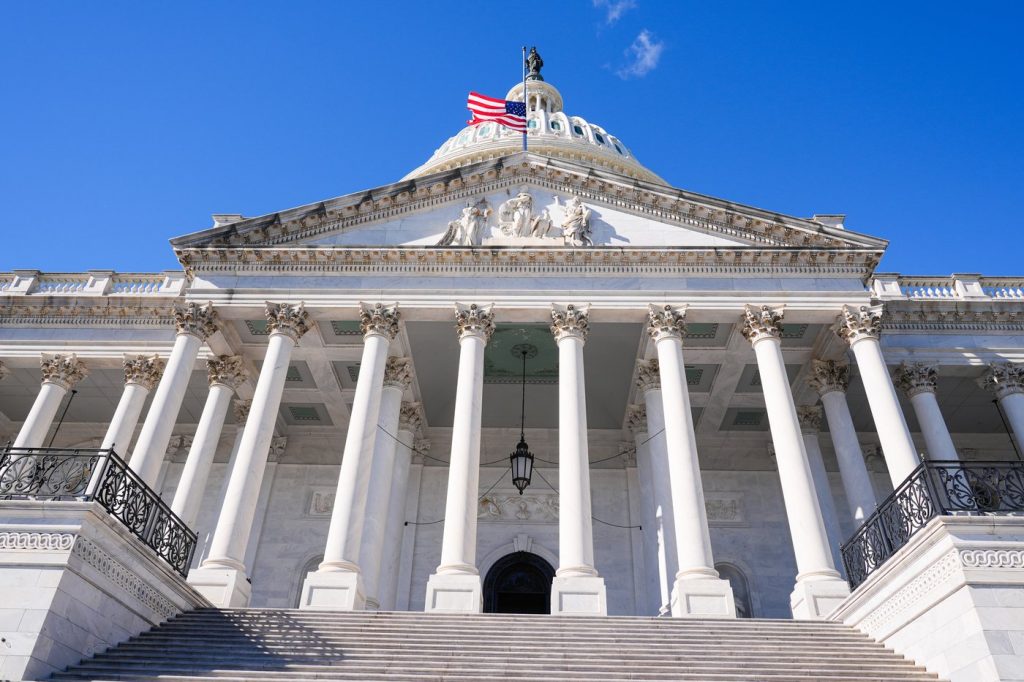WASHINGTON (AP) – Speaker Mike Johnson announced on Monday that House lawmakers should immediately return to Washington following a breakthrough late Sunday evening when a small group of Senate Democrats ended a 40-day stalemate by voting with Republicans to advance legislation aimed at concluding the government shutdown. The Senate's decision to move forward came with a 60-40 vote to consider a compromise bill for government funding, which Johnson described as the "nightmare finally coming to an end."
While the exact schedule for final Senate votes on the legislation remains uncertain, Johnson emphasized the urgent need for action. The House has been out of session since mid-September, when it initially passed a funding extension. After long negotiations, a contingent of moderate Senate Democrats agreed to support a plan that would reopen the government without securing additional health care subsidies, which has angered many in their party who have been seeking negotiations on Affordable Care Act tax credits set to expire on January 1. Senate Majority Leader John Thune, R-S.D., assured a mid-December vote on the subsidies, but many remain skeptical of the outcome.
Senate Democratic leader Chuck Schumer, along with the majority of his Democratic colleagues, voted against the proposal, asserting that the fight for health care would continue. The possibility of delaying the shutdown's resolution persists if any senators raise objections, and Thune indicated ongoing discussions regarding specific provisions within the spending bills. Republican Senator Rand Paul from Kentucky has expressed potential objections to provisions favored by his colleague Mitch McConnell, which aim to restrict the sale of certain hemp-based products.
President Donald Trump has yet to indicate whether he would sign the bill but remarked that it appears the end of the shutdown is drawing near. A group of three former governors — New Hampshire Senators Jeanne Shaheen and Maggie Hassan, along with Independent Senator Angus King of Maine — played a pivotal role in breaking the stalemate by voting to advance three bipartisan spending bills while agreeing to extend overall government funding until late January in exchange for the mid-December vote on health care tax credits. Additionally, the agreement proposes reversing the mass terminations of federal workers since the shutdown commenced on October 1 and guarantees back pay to affected employees.
Thune swiftly backed the deal and called for an immediate vote to address the continuing shutdown consequences, which have severely disrupted air travel, jeopardizing food assistance for millions, and leaving federal workers unpaid. Schumer received backlash within his party for voting to keep the government open, stating he could not support the proposal after substantial discussions with his caucus. Prominent voices within the Democratic Party expressed strong disapproval, framing the vote as a significant error that undermines health care support efforts.
Past voting patterns showed that Democrats rejected opportunities to reopen the government while demanding an extension of health care tax credits. The newly reached bipartisan agreement encompasses funding for food assistance, veterans' programs, among other priorities, with a proposal to restore federal workers impacted by layoffs and ensure state reimbursements for maintaining federal services during the shutdown.
The effects of the ongoing shutdown have been increasingly detrimental. On Sunday alone, U.S. airlines canceled over 2,000 flights — the first significant disruptions since the shutdown's onset — with thousands more delayed. Treasury Secretary Sean Duffy warned that air travel could plummet ahead of the Thanksgiving holiday if the government does not resolve the shutdown. Meanwhile, delays in food assistance have left millions in uncertainty, triggering an unprecedented demand for services from food banks to support federal employees and other affected individuals.











